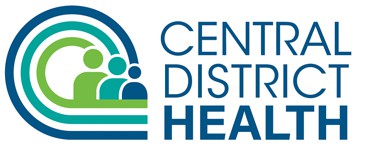Summary
Hepatitis A continues to be of concern in our region with 3 new case reports in recent weeks, including one being in a food worker. In 2019, 47 residents of our health district were confirmed to have hepatitis A. Providers should continue to test patients with clinically compatible signs and symptoms and vaccinate susceptible adults and children.
Recommended testing for acute viral hepatitis includes hepatitis A IgM, hepatitis B core IgM, hepatitis B surface antigen, and hepatitis C antibody and liver function testing. Please note, hepatitis A total antibody does not distinguish acute infection from past infection or immunity, so it is not recommended. For more information about symptoms and laboratory testing please see our May 6, 2019 HAN at: http://cdh.idaho.gov/pdfs/cd/HANs/2019/hep-a-han-05-06 19.pdf.
Post-Exposure Prophylaxis Recommendations
Persons who have been recently exposed to hepatitis A virus who have not been previously vaccinated or who don’t know if they have been vaccinated should receive a dose of single antigen hepatitis A vaccine or immune globulin as soon as possible, but within two weeks of the exposure to prevent infection. Please note that Twinrix should not be used for post-exposure vaccination.
More information regarding post exposure prophylaxis and when immune globulin is preferential to vaccine can be found at: https://www.cdc.gov/hepatitis/hav/havfaq.htm#protection.
A listing of food facility exposure dates can be found at: http://cdh.idaho.gov/dac-hepa.php.
General Vaccine Information
Pre-exposure vaccination is the best method to stop the spread of hepatitis A in a community- based outbreak. The hepatitis A vaccine is routinely recommended for children. It is recommended for adults wishing to obtain immunity or who are at higher risk for infection or severe disease. Adults in the high-risk group include:
- Persons experiencing homelessness
- Users of injection and non-injection drugs
- Men who have sex with men
- Persons with chronic liver disease
- Persons traveling to countries with moderate to high hepatitis A endemicity
- Others including persons having close contact with a newly arriving international adoptee, persons with clotting factor disorders, and persons who work with hepatitis A in a laboratory setting.
CDH is currently offering vaccine, at no cost to the patient (insurance may be billed), to people who are experiencing homelessness, users of injection or non-injection drugs, men who have sex with men, people who are uninsured or underinsured, and people who are contacts to a person with hepatitis A. Others not meeting these criteria may still receive vaccine at CDH, but will be charged for services. Patients may call 208-327-7400 to make an appointment. Patients may also search http://www.vaccinefinder.org for pharmacies and other locations providing the vaccine.

